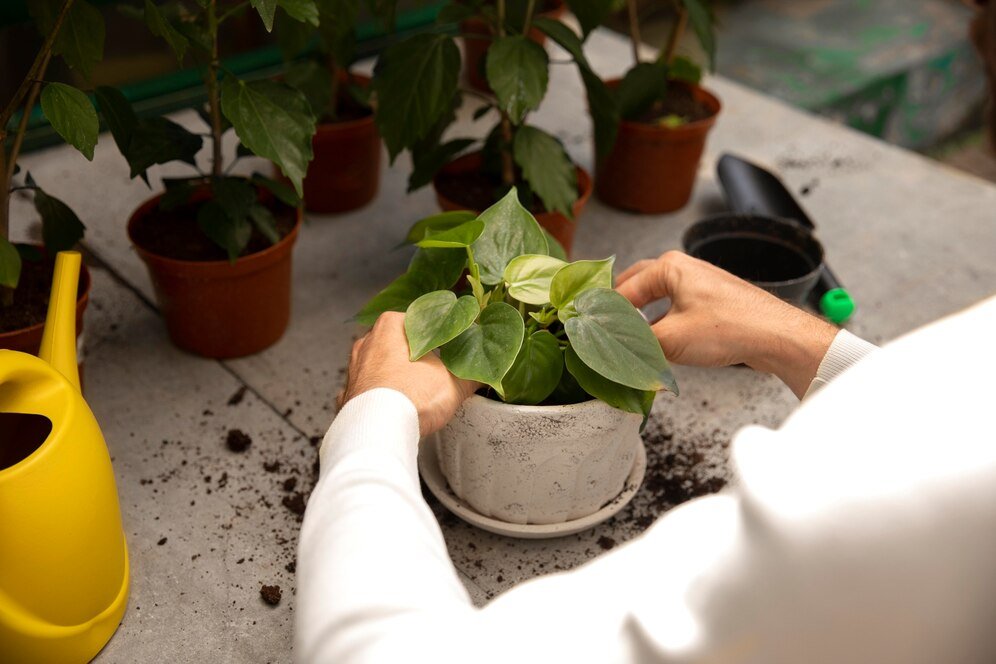Gardening sustainably not only enhances the beauty of your home but also plays a crucial role in preserving our environment. By implementing eco-friendly practices, you can create a garden that thrives without harming the planet. Here are some comprehensive tips to guide you in developing an eco-friendly garden.
1. Use Organic Methods
Organic gardening focuses on nurturing the soil and plants without synthetic chemicals. Here’s how you can embrace organic practices:
- Composting: Create your compost using kitchen scraps, yard waste, and other organic materials. Composting enriches the soil with nutrients, improves soil structure, and reduces the need for chemical fertilizers.
- Natural Fertilizers: Use organic fertilizers such as compost, manure, bone meal, and fish emulsion. These natural fertilizers release nutrients slowly, ensuring your plants receive a steady supply over time.
- Pest Control: Avoid chemical pesticides by opting for natural alternatives. Introduce beneficial insects like ladybugs and lacewings to your garden to keep pest populations in check. You can also use neem oil, garlic spray, or diatomaceous earth to deter pests naturally.
2. Water Wisely
Water is a precious resource, and conserving it is vital for sustainable gardening. Here are some strategies to use water efficiently:
- Collect Rainwater: Install a rain barrel to collect rainwater from your roof. This water can be used to irrigate your garden, reducing your reliance on municipal water.
- Drip Irrigation: Use a drip irrigation system to deliver water directly to the base of your plants. This method reduces water waste by minimizing evaporation and runoff.
- Mulching: Apply a layer of mulch around your plants to retain soil moisture and suppress weeds. Organic mulches, such as straw, wood chips, and leaves, also decompose over time, enriching the soil.
3. Choose Native Plants
Native plants are well-adapted to the local climate and soil conditions, making them easier to grow and maintain. Here’s why you should incorporate native plants into your garden:
- Water Efficiency: Native plants generally require less water once established, reducing the need for supplemental irrigation.
- Pest Resistance: These plants are more resistant to local pests and diseases, reducing the need for chemical treatments.
- Biodiversity: Native plants support local wildlife, including pollinators like bees, butterflies, and birds, contributing to a healthy ecosystem.
4. Recycle and Repurpose Materials
Incorporating recycled materials into your garden is an excellent way to reduce waste and promote sustainability. Here are some ideas:
- Plant Containers: Use old containers, such as buckets, barrels, and even shoes, as planters. Ensure they have proper drainage to prevent waterlogging.
- Garden Tools: Repurpose household items as garden tools. For example, an old spoon can be used for planting seeds, and a broken rake can be transformed into a garden trellis.
- Garden Decor: Create unique garden decor using recycled materials. Old tires can be painted and used as colorful planters, while discarded wood can be crafted into garden furniture or signs.
5. Reduce, Reuse, and Recycle
Adopting the principles of reduce, reuse, and recycle in your gardening practices can significantly lower your environmental footprint. Here’s how you can implement these principles:
- Reduce: Minimize the use of single-use plastics and other disposable items in your garden. Opt for durable, reusable tools and materials.
- Reuse: Repurpose items from around your home for gardening purposes. For instance, use glass jars as mini greenhouses or old sheets as plant covers.
- Recycle: Properly recycle garden waste and other materials. Many communities offer recycling programs for garden waste, allowing you to dispose of plant trimmings and leaves responsibly.
6. Sustainable Garden Design
Designing your garden with sustainability in mind can enhance its efficiency and reduce maintenance efforts. Here are some tips for sustainable garden design:
- Permaculture Principles: Apply permaculture principles to create a self-sustaining garden. Design your garden in zones, placing high-maintenance plants closer to your home and low-maintenance ones farther away. Incorporate elements like companion planting and crop rotation to improve soil health and reduce pest issues.
- Edible Landscaping: Combine ornamental plants with edible ones to create a beautiful and functional garden. Incorporate vegetables, herbs, and fruit trees into your landscape to provide fresh produce while enhancing biodiversity.
- Water Features: Install water features such as ponds or rain gardens to manage stormwater runoff and create habitats for beneficial wildlife. Ensure these features are designed to minimize water usage and are properly maintained to prevent issues like mosquito breeding.
7. Support Local and Sustainable Sources
Supporting local and sustainable sources for your gardening needs can reduce your carbon footprint and promote environmentally friendly practices. Here’s how you can do this:
- Local Nurseries: Purchase plants from local nurseries that grow their plants sustainably. These nurseries often offer native plants and organic gardening supplies.
- Seed Swaps: Participate in seed swaps with other gardeners in your community. Exchanging seeds helps preserve heirloom varieties and promotes biodiversity.
- Eco-Friendly Products: Choose gardening products that are made from sustainable materials and are environmentally friendly. Look for products with certifications such as USDA Organic, Fair Trade, or Rainforest Alliance.
Conclusion
Creating an eco-friendly garden is a fulfilling endeavor that benefits both you and the environment. By using organic methods, conserving water, choosing native plants, recycling materials, and supporting sustainable sources, you can cultivate a garden that is not only beautiful but also sustainable. Embrace these eco-friendly gardening tips and take pride in knowing that your garden is contributing to a healthier planet.
For more eco-friendly gardening tips and sustainable home decor ideas, visit Harneel Planet.

